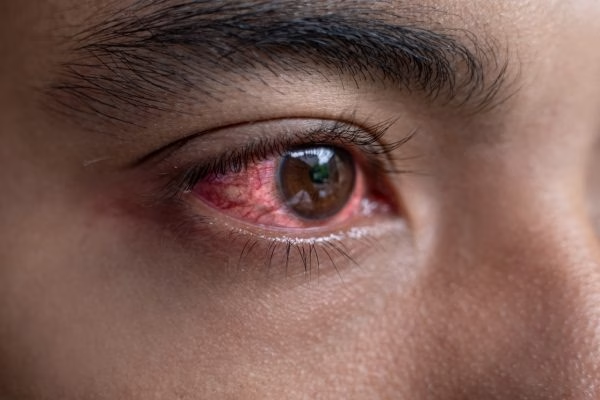
The common cold is a viral infection that, while typically mild, can leave you feeling pretty miserable. With symptoms like a runny nose, sore throat, cough, and congestion, it’s no wonder people seek out home remedies to find relief. However, not all remedies are created equal. Some can help ease your symptoms, while others might do more harm than good. In this blog, we’ll dive deep into the most popular home remedies for the common cold, exploring what works, what doesn’t, and when you should consider seeking medical help.
What is the Common Cold?
Before we get into remedies, let’s quickly cover the common cold. The common cold is caused by various viruses, with rhinoviruses being the most common culprit. These viruses primarily affect the upper respiratory tract, leading to the familiar symptoms of a sore throat, runny nose, coughing, sneezing, and sometimes a mild fever.
Colds are highly contagious, especially during the first few days when symptoms are most intense. The virus spreads through airborne droplets when an infected person coughs or sneezes and through contact with contaminated surfaces.
Effective Home Remedies: What Works?
When you’re down with a cold, you want relief—fast. Fortunately, several home remedies are both practical and backed by science. Here are some of the best:
1. Stay Hydrated:
- Why It Works: Drinking plenty of fluids helps to keep your throat moist and makes it easier for your body to expel mucus. Hydration also prevents dehydration, which can occur when you have a fever.
- Best Choices: Water, herbal teas, clear broths, and warm water with honey and lemon are excellent options. These not only keep you hydrated but can also soothe a sore throat.
2. Use a Humidifier:
- Why It Works: Dry air can aggravate your respiratory system and worsen symptoms like sore throat and congestion. A humidifier adds moisture to the air, which can help ease breathing and reduce throat irritation.
- How to Use: Place a humidifier in your bedroom while you sleep to help keep your airways moist. Be sure to clean the humidifier regularly to prevent mold and bacteria growth.
3. Rest:
- Why It Works: Rest is one of the most effective remedies for a cold. Your body needs energy to fight off the virus, and getting plenty of sleep can help boost your immune system’s efficiency.
- Practical Tips: Make your sleep environment as comfortable as possible. Use extra pillows to elevate your head if nasal congestion makes it difficult to breathe while lying down.
4. Honey for Cough Relief:
- Why It Works: Honey has natural antibacterial properties and is known for its soothing effects on the throat. It can help reduce coughing and improve sleep, especially in children.
- How to Use: Take a teaspoon of honey before bed or mix it into a cup of warm tea. However, honey should never be given to children under one year old due to the risk of botulism.
5. Gargling with Salt Water:
- Why It Works: Gargling with salt water can reduce throat inflammation and loosen mucus, making expelling easier. It also helps to kill bacteria and soothe throat irritation.
- How to Use: Dissolve half a teaspoon of salt in a glass of warm water. Gargle the solution several times a day, but avoid swallowing it.
6. Steam Inhalation:
- Why It Works: Inhaling steam can help loosen mucus and relieve nasal congestion. It also hydrates the sinuses, reducing irritation and promoting easier breathing.
- How to Use: Fill a bowl with hot water, drape a towel over your head to trap the steam, and breathe deeply for 5-10 minutes. Adding essential oils like eucalyptus or peppermint can enhance the effect.
7. Chicken Soup:
- Why It Works: It’s not just an old wives’ tale—chicken soup benefits cold sufferers. The warm broth helps keep you hydrated, and its anti-inflammatory properties can reduce upper respiratory symptoms.
- Why It Helps: Chicken soup also provides essential nutrients and can act as a mild decongestant, helping to clear nasal passages.
Home Remedies to Avoid: What Doesn’t Work and Could Be Harmful
While some remedies are effective, others are ineffective and potentially harmful. Here’s what you should avoid:
1. Antibiotics:
- Why to Avoid: The common cold is caused by viruses, not bacteria, so antibiotics are ineffective. Misusing antibiotics can lead to antibiotic resistance and other health problems.
- When They’re Needed: Antibiotics should only be used if your healthcare provider determines you have a bacterial infection, such as sinusitis or strep throat, that requires them.
2. High Doses of Vitamin C:
- Why to Avoid: While vitamin C is essential for immune function, taking large doses won’t necessarily prevent a cold or shorten its duration. Excessive intake can lead to side effects like stomach cramps and diarrhea.
- Recommended Intake: Stick to the recommended daily allowance (RDA) of vitamin C, which is 65-90 mg daily for adults. Focus on getting vitamin C from a balanced diet rich in fruits and vegetables.
3. Alcohol:
- Why to Avoid: Alcohol can dehydrate you, which is the opposite of what your body needs when fighting a cold. Dehydration can worsen symptoms and prolong recovery.
- Alternative: Instead of alcohol, opt for non-caffeinated, hydrating beverages like herbal teas and water.
4. Overuse of Nasal Decongestant Sprays:
- Why Avoid: While nasal decongestant sprays can provide quick relief, using them for more than three days can lead to rebound congestion, where symptoms return even worse after the spray is stopped.
- Better Options: Use a saline nasal spray instead, which can help moisturize the nasal passages and reduce congestion without the risk of rebound symptoms.
5. Cold Exposure:
- Why to Avoid: Contrary to popular belief, exposing yourself to cold weather doesn’t cure a cold. Being cold can make you feel worse by lowering your body’s ability to fight off the virus.
- Stay Warm: Dress warmly, stay indoors when possible, and focus on resting to give your immune system the best chance to fight off the cold.
When to Seek Medical Help
Most colds will resolve on their own within 7-10 days, but there are times when it’s essential to seek medical attention:
1. Persistent Symptoms:
- When to Worry: See a healthcare provider if your symptoms last longer than ten days without improvement or worsen over time. You could have a secondary infection, like sinusitis or bronchitis, that requires treatment.
2. High Fever:
- Red Flag: A fever above 101.3°F (38.5°C) that lasts more than three days could indicate a more severe infection, such as the flu or pneumonia, especially if accompanied by difficulty breathing or chest pain.
3. Severe Headache or Facial Pain:
- What It Could Mean: These symptoms could be signs of a sinus infection requiring antibiotics or other medical treatment.
4. Persistent Cough:
- When to Act: If you have a cough lasting more than two weeks, mainly if it produces yellow or green mucus, you should see a healthcare provider. Persistent coughs could indicate bronchitis or another underlying condition.
At AFC Urgent Care, our healthcare professionals are ready to assist you if your cold symptoms persist or worsen. We offer quick and convenient care, including diagnostics and treatment options, to help you recover quickly.
The common cold may be a mild illness, but it can still affect daily life. While many home remedies can provide relief, knowing which ones are effective and which to avoid is essential. Staying hydrated, getting plenty of rest, and using remedies like honey, steam, and saltwater gargles can help ease your symptoms.
However, if your symptoms persist or worsen, don’t hesitate to seek medical advice. AFC Urgent Care is here to provide professional care and guidance and ensure you get the relief you need.


